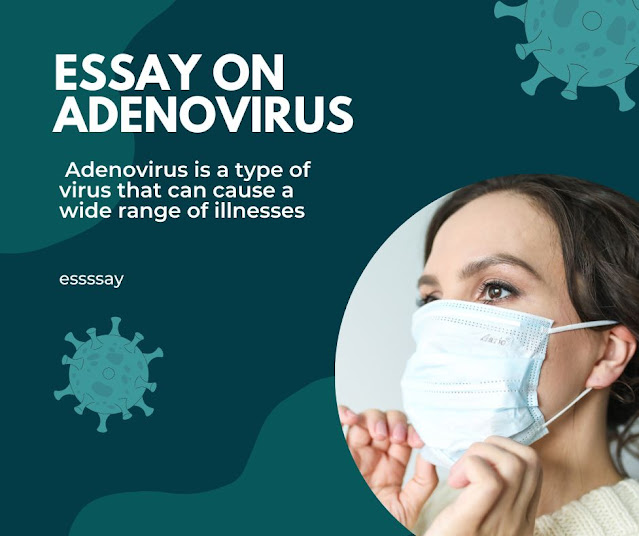Adenovirus is a type of virus that can cause a wide range of illnesses, including respiratory infections, conjunctivitis (pink eye), gastroenteritis, and more.
This virus belongs to the family Adenoviridae, which consists of non-enveloped, double-stranded DNA viruses. Adenovirus is named after the human adenoids, where it was first discovered in the 1950s.
There are over 50 different types of adenoviruses that have been identified so far, which are classified into seven different species (A-G). Each species of adenovirus can cause distinct clinical manifestations, and some species are associated with more severe diseases than others.
For example, species B, C, and E are commonly associated with respiratory infections, while species A, D, and F are more likely to cause conjunctivitis.
Adenoviruses are highly contagious and can spread easily through contact with respiratory secretions, fecal matter, or contaminated surfaces.
The virus can survive on surfaces for long periods, which makes it easy to spread in crowded environments such as schools, nursing homes, and military barracks.
Symptoms of adenovirus infection can vary depending on the type of virus and the age and health of the person infected.
Common symptoms of respiratory adenovirus infections include fever, cough, sore throat, runny nose, and congestion. Conjunctivitis caused by adenovirus can cause redness, itching, and discharge from the eyes. Gastroenteritis caused by adenovirus can lead to nausea, vomiting, diarrhea, and abdominal pain.
Most adenovirus infections are self-limiting and resolve within a few days to a week. However, in some cases, especially in people with weakened immune systems, adenovirus infections can be severe and even life-threatening. Adenovirus infection can also lead to other complications, such as pneumonia, bronchitis, or encephalitis.
There is currently no specific treatment for adenovirus infection, and management typically involves supportive care.
For example, treating symptoms such as fever and dehydration and monitoring for complications. However, in severe cases, antiviral medications and other therapies may be used to manage the infection.
Prevention of adenovirus infection involves good hygiene practices, such as frequent hand washing, avoiding close contact with infected individuals, and disinfecting surfaces that may be contaminated.
Vaccines are also available for certain types of adenoviruses, such as the adenovirus vaccine used to protect military personnel against respiratory adenovirus infections.
In conclusion, adenovirus is a common virus that can cause a variety of illnesses, ranging from mild to severe. While most adenovirus infections are self-limiting and resolve within a few days, some cases can be severe and require medical attention. Prevention through good hygiene practices and vaccination is essential to controlling the spread of adenovirus infections.









No comments:
Post a Comment
Edit your Comment